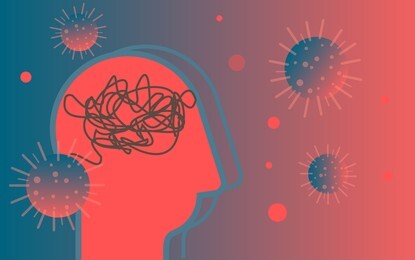
Mental Health Concerns
Certain diseases of the endocrine (hormonal) system are associated with mental illness or psychiatric manifestations. There is growing evidence in recent years on this phenomenon, including its effect on the patient’s quality of life; however, the pathogenic mechanism of development of these symptoms is incompletely understood. Thus, patients with endocrine disorders are more likely to suffer from mental illness, but endocrine diseases cannot be considered as causing mental illness.
Psychiatric characteristics in these patients might even continue after acceptable control of the associated endocrine illness has been achieved. Some of the endocrine disorders associated with mental illness include thyroid disorders, adrenal gland disorders, pituitary diseases, polycystic ovaries, and diabetes mellitus.
The role of stress :
Stress has been known to facilitate the development of psychological symptoms in endocrine diseases. Life-changing events or stresses in the immediate year prior have been reported as being predictive of the development of psychological symptoms in patients with disorders like Cushing’s disease. Stress accumulation (ongoing, daily life stress) results in a set of psychological symptoms and once precipitated, psychological symptoms persist unless specifically managed.
Psychiatric characteristics in hormonal diseases :
Some of the associated psychiatric manifestations in endocrine diseases are listed in Table 1 below.
Table 1: Common psychiatric manifestations of endocrine disorders*
| Endocrine disorder | Psychiatric characteristics |
| Hyperthyroidism | Major depression, often associated with anxiety and irritability is the most common complication. Generally responsive to adequate endocrine treatment. Sometimes, antidepressant drugs are required. |
| Hypothyroidism | Depression, paranoid symptoms, and cognitive disturbances may be present. |
| Hyperparathyroidism | Depression and cognitive symptoms may occur. |
| Polycystic ovarian syndrome | Depression and generalized anxiety symptoms may be present. |
| Hyperprolactinemia | Depression, hostility, and anxiety are common. |
| Primary aldosteronism | Anxiety disorders |
| Cushing’s syndrome | Major depression may affect ~50% of patients. Antidepressants are often ineffective, while inhibitors of steroid production are generally effective. Anxiety is frequently present. At times, mania may alternate with depression. |
| Addison’s disease | Depression (characterized by apathy, social withdrawal, and irritability) is often present and generally responsive to steroid replacement. |
*Adapted from Sonino et al. (2015)
Management :
- Seek help! Please reach out to your physician in case of hopelessness, irritability, anxiety, or demoralization.
- Treating the underlying disease: Achievement of adequate control of the endocrine disorder will result in remission of the psychiatric manifestations.
- In a case of residual symptoms after hormonal disorder treatment, an appropriate combination of counseling and medical management (drugs/pharmaceuticals) is required for the remission of mental symptoms.
There is always a certain level of stigma associated with mental health awareness, however, self-awareness is the key to getting over this stigma and taking the first step towards better mental health. "Due to diabetes and a stressful job, I was not able to take my life at its own pace and felt extremely frustrated. With counseling I was able to modify my lifestyle and manage my stress well", quips Arvind, who got help from an online counseling portal to help him manage his diabetes-related stress and depression.
About FREE Online Psychologist Session:
Our FREE Online Psychologist Session helps understand the thoughts and feelings leading to stress. As we know, stress affects health badly. Working on your stress will improve your health greatly. With the help of our qualified experts, login to our affiliate online counseling website http://bit.do/mental-physical-wellness and take a free session with our expert psychologists. All this in the privacy of your own home!